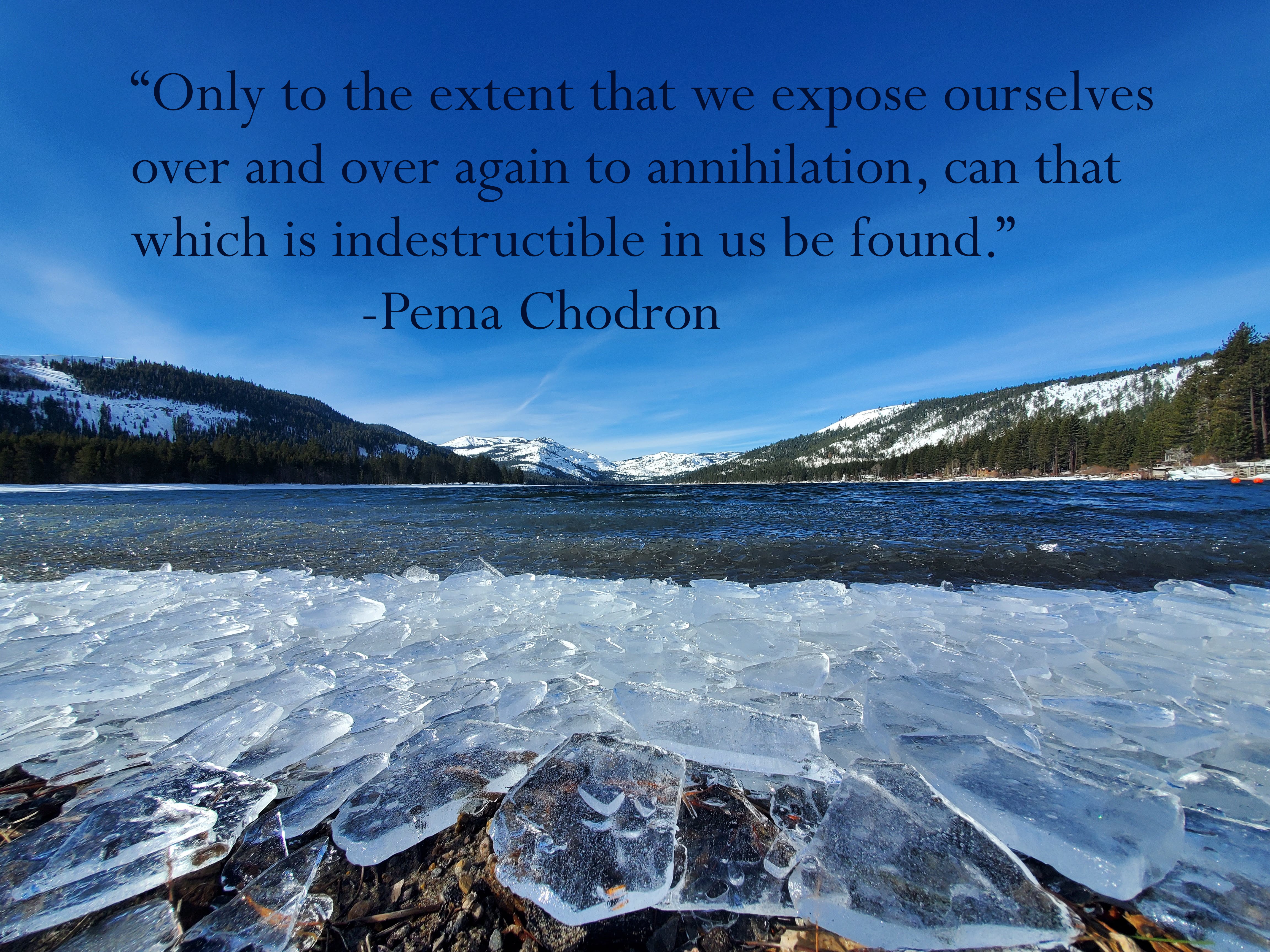“Only to the extent that we expose ourselves over and over again to annihilation, can that which is indestructible in us be found.”
Pema Chodron
Many people come to a therapist or coach before, during, or after a big transition in life.
Change often scares us, especially when we know we’ll be leaving something we cherish behind (or already have), or when we are thrust into a new, challenging situation (or are about to be).
“It’s not going to be the same” is a remark I heard from college students when they were about to graduate, and move on to the next chapter, whether that was starting a new job immediately, moving back home for a while to work while they applied to graduate school, or just stayed in town until their exams were finished so they had time to think about next steps. Part of me wanted to tell them that the next step would be the same, better, or at least as “good” (fun, exciting, alive) as their college experience. But I couldn’t know that, and I try to only say things if they feel true to me. My job wasn’t to offer reassurances, it was to be with them where they were at: often some combination of afraid and excited.
Not all students were scared or sad – some were relieved, if they didn’t have the best college experience. But even in those cases there was often apprehension about next moves.
The only constant in life is change, as they say.
Those weren’t the last major life transitions those individuals would experience. After finishing school, people often get married (leaving behind the freedom of single life), have kids (leaving the freedom of putting oneself first), lose loved ones, have divorces or breakups of very long-term relationships, hit middle-age (losing parts of their idealistic goals and identities), experience significant illness and limitations, and so on.
Does that sound depressing or frightening? I felt a little scared just writing that. I know I haven’t experienced my last major life transition either. They are TOUGH. I’m thinking of breakups of partners that were dear and important to me. I’m thinking of leaving student life of after many years and hitting the work force. Of my almost certain decision to not have kids of my own. I’m thinking of a gradual noticing of decreased ability and energy in my body over the past 20 years.
At the same time, part of me is glad that I’m not in my early 20’s anymore. Before that age, life seems to feel more additive than subtractive. During childhood and adolescence, we upgrade from crawling to walking, then to running. We lose being a little kid, and become a big kid. We lose our prepubescent bodies, but gladly swap them out for our growing, more abled post-pubescent bodies. When you get into a first serious relationship, giving up the innocence of having never loved someone seems like a small price to pay.
So, it’s not often until later in life that we sometimes don’t feel as good about our transitions. Who wants to swap out health for sickness? Companionship for singlehood? A good job for temporary unemployment? Idealistic dreams for pragmatic necessity? Life for death?
That said, each time we lose something big in life, we get better at replacing it with something new. A lost love can lead to a deep period of sacred solitude in which we learn to love ourselves. A lost ability or activity can lead to us attending to or caring for something or someone we’ve been neglecting. A closed career door can lead to a quest that discovers a new purpose. A lost person can create a space in our life for a new, deep friendship.
At 41, I think it’s safe to say that I’m officially at the mid-life mark now. Interestingly, I have more confidence than I did two decades ago about facing future losses and transitions. I know that losses tend to have another side to them: gain. Even if that gain is simply time and space of the void that remains from the loss. I know that something will be created in the void, especially if I am patient and non-judgmental about what is happening.
Each day is a blank canvas. We may not have all the colors or tools that we used to, but we might discover some new techniques. We can paint something, as long as there’s another canvas. It won’t “be the same”. But it will be something. It will be experience. It can be beautiful, with grace, receptivity, and practice.
